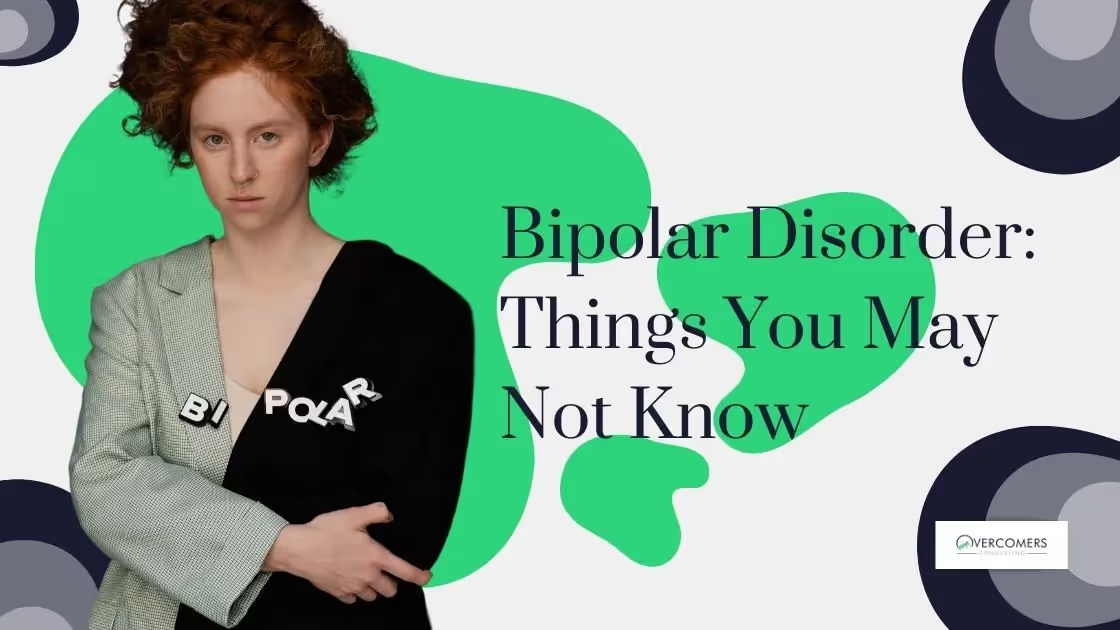If you have bipolar disorder, you're likely familiar with all the symptoms that come with it. Just for those that don't quite know what it is, let's go...

If you have bipolar disorder, you're likely familiar with all the symptoms that come with it.
Just for those that don't quite know what it is, let's go through a brief introduction.
As a mood disorder that causes intense mood swings, the challenges of this mental health issue are many.
Those that suffer from this mental illness often find their mood swings will keep them either "up" or "down" for periods of time.
Rapid cycling of moods can happen and several symptoms can present themselves when going through an episode and not in a state of neutral.
Symptoms can vary from person to person and what type of they have.
Some of the common symptoms of this disorder are having a deep sense of sadness, hypersensitivity, mood swings, lethargy, bleak outlook, and trouble sleeping.
Other symptoms include:
There are two different types of this disorder in the mental health sphere.
Bipolar I and bipolar II are both just as serious as the other, however, there are key differences between the two.
People with mood disorders rarely know which one they are until they learn of their diagnosis.
According to the American Psychiatric Association's Diagnostic and Statistical Manual of Mental Disorders (DSM-5), they define this disorder as:
"A group of brain disorders that cause extreme fluctuation in a person's mood, energy, and ability to function."
Bipolar I is a manic-depressive disorder that includes symptoms such as at least one manic episode, major depressive episodes, and hypomanic episodes.
Bipolar II doesn't have manic episodes, but they have more deep depressive episodes that last a long time.
If you have a manic episode, your psychiatrist will diagnose you with bipolar I.
There is also cyclothymic disorder, which is a type of bipolar that isn't as well known.
The DSM-5 defines this as "a cyclic disorder that causes brief episodes of hypomania and depression."
This disorder usually results in less extreme cycles of hypomania and depression but is just as serious a type of mental health disorder.
Bipolar is..."A group of brain disorders that cause extreme fluctuation in a person's mood, energy, and ability to function."
American Psychiatric Association's Diagnostic and Statistical Manual of Mental Disorders
Anxiety is another big factor that comes into play.
Often those that have this disorder also have some comorbidities, too.
All too often, these are symptoms such as anxiety, poor self-esteem or even other mental illness and health conditions.
This mood disorder also only affects 2.5% of the population, and it has its own chapter in the DSM-5 because of its severity.
The issue is that most people usually come from a family background where someone has it, too.
Learning more about your family history is important to improve your likelihood of successful treatment.

As a mental health patient, or a friend of one, you'll want to be educated and learn the ins and outs of your relationship with your mental health.
Research and self-care are two important things you can do for yourself when you have this disorder.
Living with bipolar is difficult for those that have it.
Treatment comes in many forms, from medications to therapy.
Mental health therapists are there to help overcome these obstacles, and you should reach out to one if you're experiencing these symptoms.
Talk to a family member or reach out to those around you should you need help.
As a mental health patient or a friend of one, you'll want to be educated and learn the ins and outs of your relationship with your mental health.
Research and self-care are two important things you can do for yourself when you have this disorder.
Living with bipolar is difficult for those that have it, but treatment comes in many forms, from medications to therapy.
Mental health therapists are there to help overcome these obstacles, and you should reach out to one if you're experiencing these symptoms.
Talk to a family member or reach out to those around you should you need help.
https://www.psycom.net/bipolar-definition-dsm-5/
https://www.healthline.com/health/bipolar-disorder
https://medlineplus.gov/bipolardisorder.html
Therapy provides many benefits for people battling depression. Research has shown that cognitive-behavioral therapy (CBT) is particularly effective in managing depressive symptoms. In addition, therapy can teach healthy coping skills and provide emotional support during difficult times. It may also be used as part of a comprehensive treatment plan which includes medication as well as lifestyle changes such as regular exercise and improved nutrition.
If your symptoms of depression have been persistent and interfere with your daily life, it's important to seek help from a mental health professional. It's also a good idea to get medical advice if you experience any thoughts of self-harm or suicide.
Addressing depression is crucial because it can significantly impact your quality of life, overall well-being, and ability to function in daily activities. Left untreated, depression can lead to more severe mental health issues, relationship problems, and physical health complications.
Ignoring depression can exacerbate symptoms and make it more challenging to manage over time. This can result in a negative impact on your personal, professional, and social life, leading to feelings of isolation and even thoughts of self-harm or suicide.
Yes! There are many effective natural remedies that may be beneficial in managing depressive symptoms, such as participating in regular physical activity, changing your diet, getting adequate sleep, practicing relaxation techniques like yoga or meditation, journaling about your feelings/thoughts/emotions, seeking out social activities/support groups with other individuals struggling with similar issues
Depression is a mental disorder (a common one) that affects millions of people worldwide. It is characterized by persistent feelings of sadness, hopelessness, and loss of interest in activities once enjoyed.In this section, we will discuss the various types of depression, including major depressive disorder, persistent depressive disorder, and bipolar disorder.Gaining a deeper understanding of your depression is the first step in finding the right treatment and support.